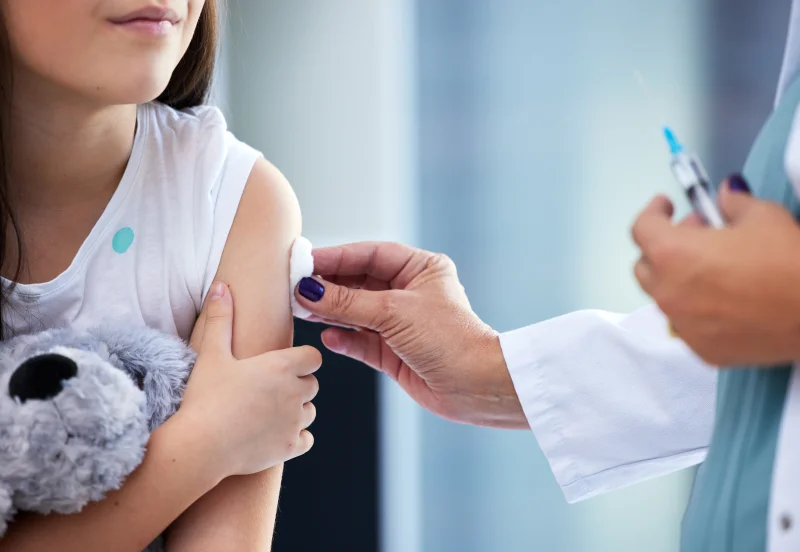
I once met a man who had been playing along the train tracks as a young boy. A train passed. He suddenly felt a splash of water on him. The dirty liquid had come from the train. Days later he developed a fever and then polio. The effects of the infection were still prominent decades later as he lay in a hospital bed.
The vaccine for polio was first released in 1955. World War II hero Dwight D Eisenhower was president at the time, and he enjoyed approval ratings in the 70s. Such popularity is unheard of in modern politics. The American economy was booming. Following the successes of WWII, trust in the government was high. Trust in science was high. Prior to releasing the polio vaccine 600,000 parents volunteered their own children to participate in clinical testing of the vaccine. Even when there was a manufacturing error in inactivating the polio virus and hundreds of vaccinated children were left paralyzed and 10 died, parents continued to give their children the vaccine.
Today, it seems we are less trusting of science and far less trusting of the government. There are many reasons for this. With the unimaginable amount of information online it can be difficult knowing what information is reliable, out of date, or completely made up. I have many well-meaning extended family who send me information I know to be false. I’ll never forget speaking to one of my relatives as I drove home from the hospital in 2020. She told me that COVID wasn’t real after I had spent 12 hours caring for people struggling to breathe due to COVID.
Despite the changes in our perception of science and government, vaccinations remain of paramount importance. The World Health Organization declared that polio was eliminated from the Americas in 1994. Before that smallpox was eradicated in 1980. I have never seen a child suffocating from epiglottitis as H influenza vaccines have made it extraordinarily uncommon. If a child gets rubella, it typically makes national news, since it is so rare. It is hard to comprehend how much good has come from vaccines.
Vaccines are obviously not risk free. My four-year-old daughter was exposed to a bat during a family reunion last summer. We are not sure how much contact she had, but she repeatedly said she touched it. The bat ended up having rabies. Hours after receiving the rabies vaccine she was covered in hives and suffered a terrible asthma attack that lasted for days.
It is common to get a mild fever or feel a little ill after getting a vaccine. Vaccines are meant to create an immune response and sometimes that response feels like you’re sick. Typically, that response lasts a few days. A serious side effect from a vaccine is about a one-in-a-million chance. Even my daughter’s rash is about a 1-in-10,000 chance. Almost always the one in a million serious side effect is an allergic reaction that affects breathing. This is similar to what my daughter had, but with a quick onset that can close the throat. This is called anaphylaxis. It is possible to have an anaphylactic reaction to anything, including peanuts. All locations that give vaccines should have epi pens ready to treat a serious allergic reaction.
Will you or your child get a sore arm, a fever or body aches after getting a vaccine? It’s very possible. Typically, nothing that Tylenol and Ibuprofen can’t fix. Staying hydrated also helps. Will something serious happen? I say with confidence almost certainly not. Billion-dollar casinos are a testament to how rare one-in-a-million happens. If something does happen there are treatments and procedures. I was very grateful for those treatments and procedures when my little girl was wheezing in the middle of the night.
You may not trust me and that’s OK. Talk to a health professional you do trust. If you don’t know a health professional you trust, consider getting to know one and let that trust build. It may also help to review the many, many studies that have been published by universities, scientific journals and governments all over the world. These studies are easy to access online.
I do trust vaccines, in part, because they have changed the world. I for one am grateful I don’t have to worry if a dormant rabies virus is going to claim my daughter’s life months after a happy family reunion. I’m grateful the only polio patients I’ve known are elderly. I’m grateful I’ve never had to sedate a child and put them on a respirator, because of epiglottitis, like my instructors did. I’m grateful I don’t have a scar on my arm from a smallpox vaccine, because it was eradicated before I was born. Nothing is perfect, but I am nonetheless very grateful.
– Daniel Sterner is a physician at Health West American Falls. He specializes in family medicine and obstetrical care and is accepting new patients.








